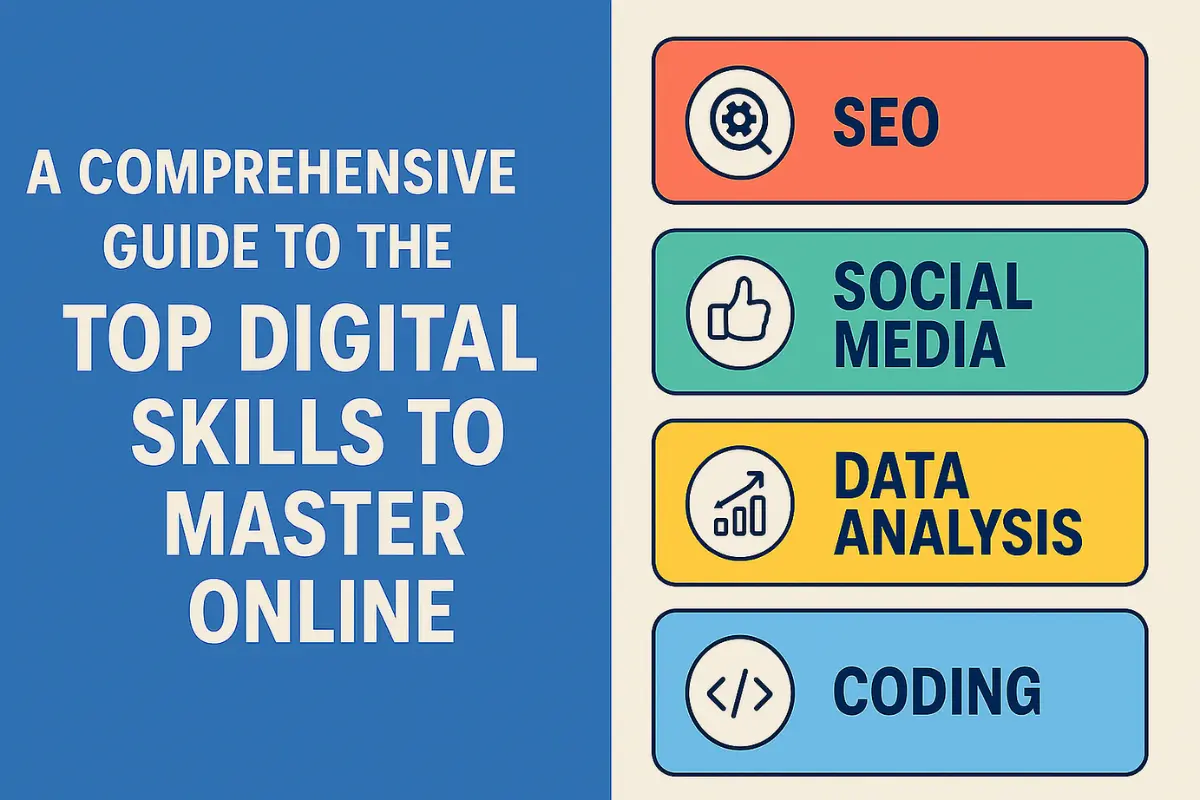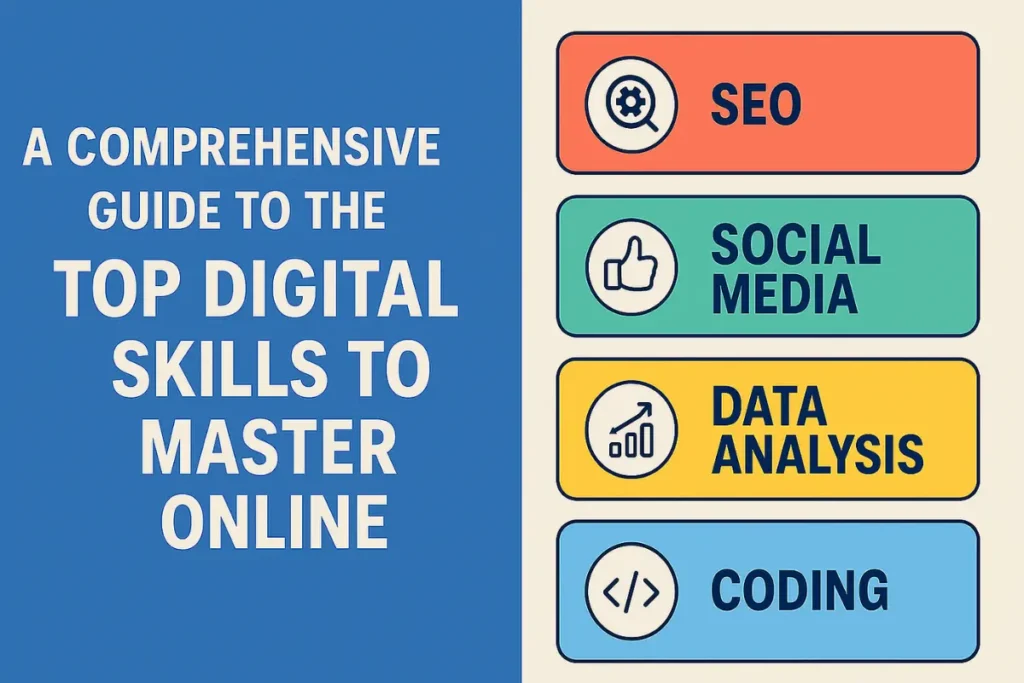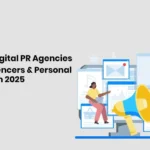In an era defined by rapid technological evolution, the concept of a “stable career” has been fundamentally rewritten. The skills that secured a job a decade ago are no longer sufficient, and the landscape of tomorrow is being shaped by digital proficiency. The silver lining in this whirlwind of change is unprecedented access to knowledge. The internet has democratized education, making it possible for anyone with curiosity and an internet connection to acquire the most in-demand skills of the 21st century.
This article is your strategic guide to navigating this new world. We will move beyond a simple list and delve into the *why*, *what*, and *how* of the most critical digital skills. We will explore not just technical hard skills but also the crucial cognitive and strategic abilities that make them valuable. Our goal is to provide a detailed roadmap to help you future-proof your career, whether you’re looking to advance, pivot, or build something of your own.
The Foundational Layer: The Non-Negotiables
Before we dive into specialized domains, there is a set of foundational skills that are now as essential as reading and writing. These are the bedrock upon which other digital expertise is built.
1. Digital Literacy and Cybersecurity Awareness
This goes far beyond knowing how to use a smartphone. True digital literacy involves understanding how digital systems work, how to navigate the online world critically, and how to protect yourself within it.
Why it’s vital:
We live our lives online—from banking and shopping to socializing and working. Understanding privacy settings, recognizing phishing scams, using strong password hygiene (preferably with a password manager), and grasping the basics of two-factor authentication are no longer optional; they are imperative for personal and professional safety.
How to learn it:
Platforms like **Coursera** and **edX** offer courses from universities on cybersecurity fundamentals. Organizations like **Google’s Digital Garage** also provide excellent free primers on online safety.
2. Data Literacy
Data is the new oil, but it’s useless if you can’t refine it. This literacy is the ability to read, understand, create, and communicate data as information. It’s about asking the right questions of data, interpreting charts and graphs, and making informed decisions based on empirical evidence rather than gut feeling.
Why it’s vital:
Nearly every role, from marketing to HR to operations, now interacts with data. Being able to understand a performance dashboard, analyze customer metrics, or critique a data-driven proposal is a universal advantage.
How to learn it:
Start with basic statistics on **Khan Academy**. Then, move to courses like “Data Literacy” on **DataCamp** or “Understanding and Visualizing Data with Python” on **Coursera**.
The High-Demand Specialized Skills: Your Career Catalysts
These are the skills with clear, high-market value and a significant talent gap. Mastering one or more of these can lead to lucrative and secure career paths.
1. Data Science and Analytics
This field is the engine room of the modern enterprise. It involves extracting insights and knowledge from structured and unstructured data.
Core Components:
Statistical Analysis & Mathematics: The foundation for understanding what the data is telling you.
Programming (Python & R): Python, with libraries like Pandas, NumPy, and Scikit-learn, is the industry leader. R is also powerful for statistical analysis.
Data Wrangling & Visualization: The unglamorous but critical work of cleaning messy data and then presenting it clearly using tools like **Tableau**, **Power BI**, or Python’s Matplotlib and Seaborn.
Machine Learning: A subset of data science involving algorithms that can learn from and make predictions on data.
Career Paths: Data Analyst, Data Scientist, Business Intelligence Analyst.
How to learn it: The **IBM Data Science Professional Certificate** on Coursera is a renowned starting point. **DataCamp** is a subscription platform entirely focused on data skills, and **Kaggle** offers micro-courses and real-world datasets to practice on.
2. Artificial Intelligence and Machine Learning (AI/ML)
AI/ML is the frontier of technology, creating systems that can perform tasks that typically require human intelligence.
Core Components:
Fundamentals of ML: Supervised vs. unsupervised learning, regression, classification, clustering.
Deep Learning & Neural Networks: The technology behind advancements in image and speech recognition (using frameworks like TensorFlow and PyTorch).
Natural Language Processing (NLP): Enabling machines to understand and generate human language, powering chatbots and translation services.
Prompt Engineering: A newly critical skill involving crafting precise instructions for generative AI models (like ChatGPT, Midjourney) to produce the desired output.
Career Paths: Machine Learning Engineer, AI Specialist, NLP Engineer.
How to learn it: Andrew Ng’s “Machine Learning” course on Coursera is a classic introduction. Fast.ai offers a more practical, code-first approach. For deep learning, the official documentation and courses for **TensorFlow** and **PyTorch** are excellent.
3. Digital Marketing and Analytics
The entire customer journey has moved online, and businesses need experts who can navigate this digital marketplace.
Core Components:
Search Engine Optimization (SEO): The art and science of getting a website to rank highly on Google. This involves technical site structure, content creation, and link-building.
Search Engine Marketing (SEM) & Pay-Per-Click (PPC): Running paid ad campaigns on Google Ads and Microsoft Advertising.
Social Media Marketing: Beyond posting, this involves strategic community building, paid social advertising on platforms like Meta (Facebook/Instagram), TikTok, and LinkedIn, and analytics.
Content Marketing & Strategy: Creating valuable, relevant content (blogs, videos, podcasts) to attract and retain a defined audience.
Email Marketing: Still one of the highest ROI marketing channels, requiring skills in automation, segmentation, and copywriting.
Marketing Analytics: Using tools like **Google Analytics 4** to track performance and prove ROI.
Career Paths: Digital Marketing Manager, SEO/SEM Specialist, Content Strategist, Social Media Manager.
How to learn it: Google’s Skillshop offers free, official certifications for its products (Google Ads, Analytics). **HubSpot Academy** provides a superb library of free courses on inbound marketing and sales. The **Digital Marketing Institute** also offers respected certifications.
4. User Experience (UX) and User Interface (UI) Design
This discipline focuses on the human-side of technology. It’s about creating products, websites, and apps that are not only visually appealing (UI) but also logical, easy, and enjoyable to use (UX).
Core Components:
User Research & Personas: Understanding the target audience’s needs, behaviors, and pain points.
Wireframing & Prototyping: Creating blueprints (wireframes) and interactive models (prototypes) of a product using tools like **Figma**, **Sketch**, or **Adobe XD**.
Usability Testing: Observing real users interacting with a design to identify problems and areas for improvement.
Visual Design & Interaction Design (UI): Crafting the final look and feel—colors, typography, spacing, and animations.
Career Paths: UX Designer, UI Designer, Product Designer.
How to learn it: The **Google UX Design Professional Certificate** on Coursera is a highly-regarded, accessible entry point. **Interaction Design Foundation** offers in-depth, research-backed courses. Practicing with **Figma** (which has a free tier) is essential.
5. Cloud Computing
Businesses are rapidly moving their infrastructure from physical servers to the cloud, and they need professionals to manage it. The dominant players are Amazon Web Services (AWS), Microsoft Azure, and Google Cloud Platform (GCP).
Core Components:
Cloud Architecture: Designing and building scalable, secure, and cost-effective systems in the cloud.
Core Services: Understanding compute (e.g., AWS EC2, Azure Virtual Machines), storage (e.g., AWS S3), databases, and networking in a cloud environment.
Security & Compliance: Implementing identity and access management (IAM) and ensuring data protection.
DevOps & Serverless: Embracing practices like Infrastructure as Code (IaC) and using serverless computing models.
Career Paths: Cloud Architect, Cloud Engineer, DevOps Engineer.
How to learn it: The cloud providers themselves offer the best training. **AWS Training and Certification**, **Microsoft Learn** (for Azure), and **Google Cloud Training** have extensive free and paid learning paths leading to official certifications, which are highly valued in the job market.
Also Read
6. Software Development & Programming
The ability to write code remains one of the most powerful and flexible skills. While “what” to build is changing, the fundamental need for developers is not.
Core Components:
Front-End Development: Building what the user sees and interacts with in a web browser. Core technologies are **HTML, CSS, and JavaScript** (and frameworks like React, Vue, or Angular).
Back-End Development: Building the server, application, and database that work behind the scenes. Common languages include **Python, JavaScript (Node.js), Java, C#, and PHP**.
Full-Stack Development: A combination of both front-end and back-end skills.
Mobile Development: Building apps for iOS (using Swift) or Android (using Kotlin).
Career Paths: Web Developer, Software Engineer, Mobile App Developer.
How to learn it: **freeCodeCamp** offers a completely free, project-based curriculum. **The Odin Project** is another excellent free, open-source resource for full-stack development. Paid platforms like **Codecademy** and **Udemy** provide structured bootcamps and courses.
The Power Skills: The Human Edge in a Digital World
Technology is a tool, and its value is determined by the humans wielding it. These “soft skills” are what differentiate a good technician from a great strategist and leader.
Critical Thinking and Problem-Solving: The ability to analyze complex situations, deconstruct problems, and develop effective solutions is irreplaceable by AI.
Adaptability and Lifelong Learning: The only constant is change. Cultivating a growth mindset and being proactive about learning new tools and methodologies is a career-long necessity.
Communication and Collaboration: The ability to explain complex technical concepts to non-technical stakeholders, work effectively in teams (often remotely), and manage projects is paramount. Tools like **Slack**, **Asana**, and **Trello** facilitate this, but the human skill of communication is the key.
Crafting Your Learning Strategy: How to Begin
Self-Assess: What are your interests? Are you drawn to visual design, logical problem-solving, or strategic thinking? What skills align with your current role or desired career path?
Start with One Skill: Don’t try to boil the ocean. Choose one skill from the list that excites you and has good market alignment.
Choose Your Platform: Based on your learning style (video, text, interactive) and budget, select a primary learning platform. Mix and match free and paid resources.
Build a Portfolio: Theory is nothing without practice. For any skill—coding, design, digital marketing—create tangible projects. Build a website, design a mock app, run a small ad campaign for a friend’s business, or analyze a public dataset. Your portfolio is your new resume.
Engage with the Community: Join online forums (like Reddit’s r/learnprogramming or r/digitalmarketing), attend virtual meetups, and connect with people on LinkedIn. Learning is social, and the community provides support, inspiration, and opportunities.
Conclusion: An Investment in Your Digital Self
The journey to acquiring top digital skills is not a short-term sprint but a rewarding, lifelong marathon. The landscape will continue to shift, with new tools emerging and old ones evolving. However, by building a strong foundation in both technical and human-centric skills, you are not just preparing for the next job; you are cultivating a mindset of resilience and adaptability. You are investing in a future where you are not a passive passenger in the digital economy, but an active, confident architect of your own career. The resources are at your fingertips. The only question that remains is: which skill will you start with today?





